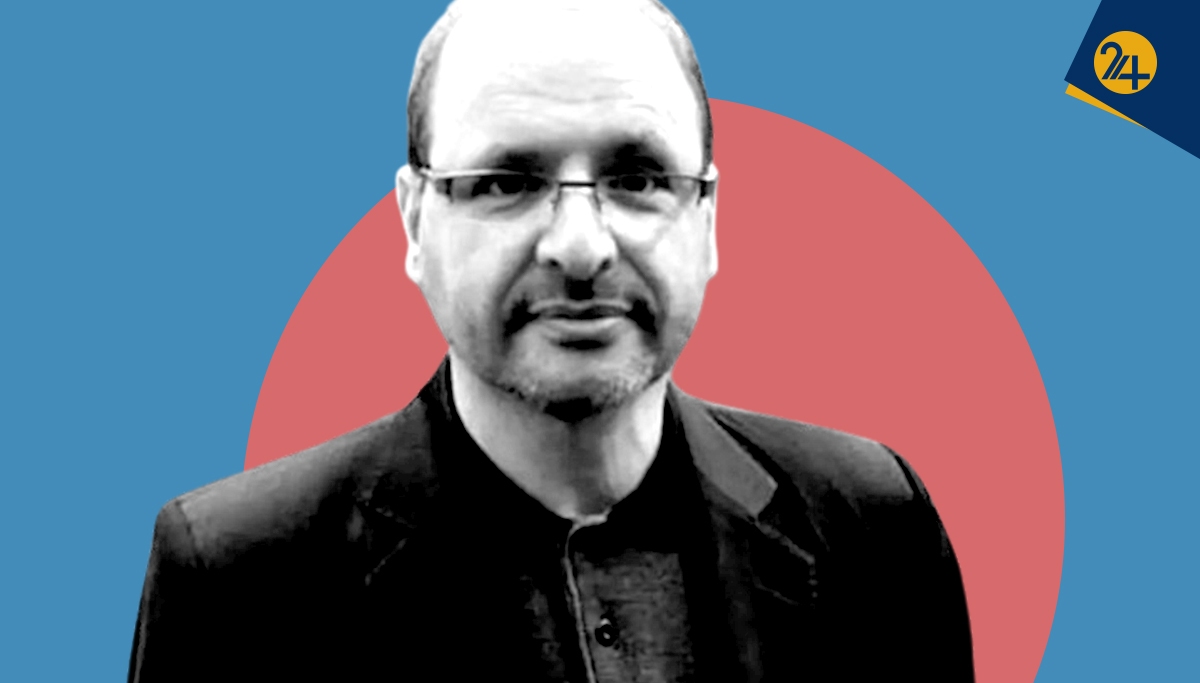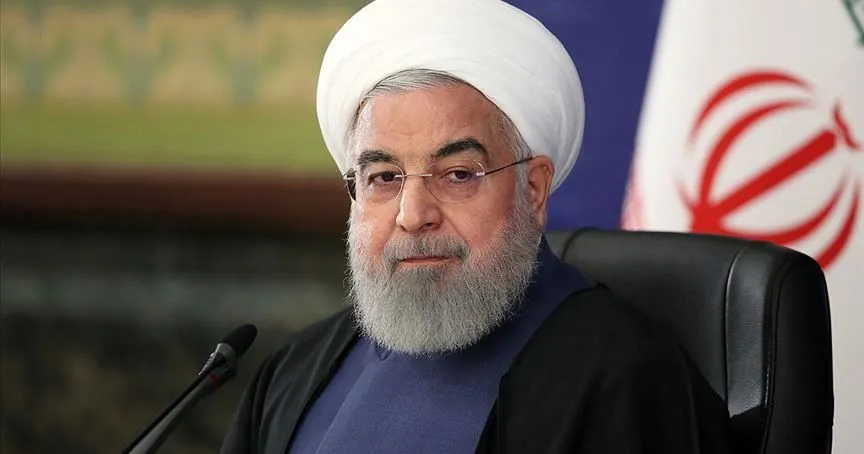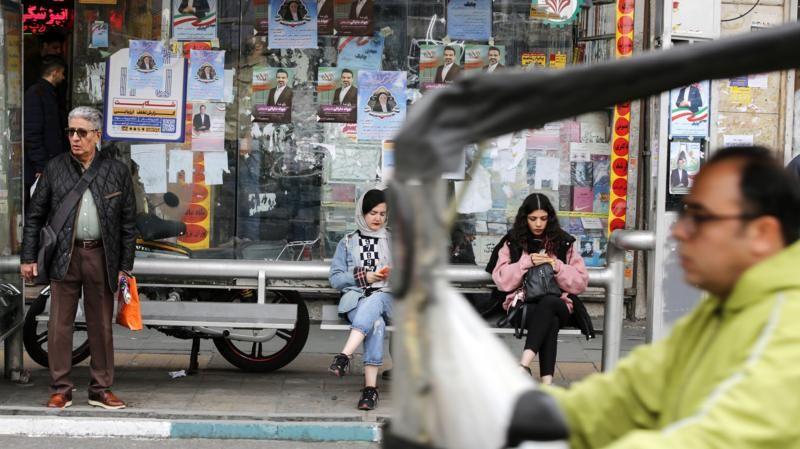
Zibakalam and General Thoughts
An editorial by Mohammad Mohajer in Etemad newspaper discussed the issue of the imprisonment of Sadiq Zibakalam, a prominent figure known for his outspoken views and willingness to challenge prevailing narratives. It emphasized that the incarceration of Zibakalam does not bode well, even from the perspective of the judiciary. Despite some of his opinions being contentious, particularly when he diverges from the mainstream, Zibakalam has played a significant role in fostering open dialogue and political transparency.
Zibakalam has long been recognized for candidly expressing his views, often accompanied by sharp criticisms of governmental policies or societal norms. His willingness to challenge conventional wisdom has made him both admired and criticized within Iranian society. From defending historical figures like Reza Khan Pahlavi to scrutinizing Israel’s actions, Zibakalam’s viewpoints span a wide spectrum, occasionally drawing ire from those who hold steadfast to traditional ideologies.
In recent years, Zibakalam’s public appearances and statements have become more radical, especially after 2018. Despite this, the editorial argued that his views, along with those of other intellectuals in various fields, have not jeopardized national security. While some of Zibakalam’s perspectives may clash with the interests of certain government factions, his commitment to honest discourse remains commendable.
However, the editorial refrained from challenging outright the judiciary’s decision to imprison Zibakalam. Instead, it underscored that from a political standpoint, his incarceration seems counterproductive. At the age of 70, Zibakalam continues to engage in debates with individuals much younger than himself, demonstrating his humility and willingness to exchange ideas.
Despite facing criticism within academic circles, Zibakalam’s presence serves as a catalyst for political transparency. His willingness to engage in dialogue and challenge prevailing narratives contributes to a more vibrant public discourse, even if his viewpoints are sometimes contentious.
Arguably, Zibakalam’s imprisonment could be interpreted as an attempt to stifle dissent or discourage others from expressing dissenting opinions. However, the editorial contended that such actions are ultimately detrimental to the democratic process and hinder the progress of society.
Reconsidering Iran’s Nuclear Strategy
An editorial by Youssef Molayi in Arman Melli newspaper shed light on Iran’s nuclear policy in light of recent developments and statements made by Iranian officials. It highlighted Iran’s compliance with the terms of the Joint Comprehensive Plan of Action (JCPOA) and cooperation with the International Atomic Energy Agency (IAEA), which confirmed Iran’s adherence to its obligations under the agreement.
However, when the United States, under the Trump administration, unilaterally withdrew from the JCPOA, Western countries failed to fulfill their commitments to Iran. This led to Iran’s partial withdrawal from certain JCPOA provisions and adjustments in its uranium enrichment levels. The editorial emphasized that Iran’s actions were reactive and aimed at safeguarding its interests in the face of Western non-compliance.
The editorial referenced a statement by Kamal Kharazi, the head of Iran’s Foreign Policy Strategic Council, regarding Iran’s nuclear doctrine. Kharazi’s statement, according to the editorial, should not be interpreted as Iran’s intention to pursue nuclear weapons but rather as a deterrent measure. The editorial explained that Kharazi’s remarks were meant to dissuade potential aggressors by conveying the message that any attack on Iran would incur significant costs.
Yet, the editorial emphasized Iran’s stance on nuclear weapons, highlighting its adherence to international norms while asserting its right to defend itself against aggression. It cautioned against misinterpreting Iran’s statements and underscored the need for dialogue and diplomacy to address nuclear-related concerns.
Iran’s Majlis From Legitimacy to Acceptability
An editorial in Jomhouri Eslami newspaper addressed the significance of the Islamic Consultative Assembly, commonly known as the Majlis, within the framework of the Iranian republic system. It emphasized that the legitimacy of the Parliament derives from people’s participation in elections, highlighting the importance of high voter turnout in bolstering its credibility.
The editorial pointed out a concerning trend of declining voter participation in recent parliamentary elections, particularly evident in the 11th and 12th Parliament elections. Despite the significant decrease in voter turnout in the 11th Parliament elections serving as a warning, the authorities failed to address the underlying issues, resulting in further decline in participation in the subsequent elections.
Notably, the editorial highlighted the alarmingly low voter turnout in Tehran constituency during the 12th Parliament elections, underscoring the erosion of public trust in the electoral process. The situation was exacerbated by the election of the speaker of the 12th Parliament from Tehran, where a candidate received less than 5% of eligible votes, casting doubt on the legitimacy of the Parliament’s leadership.
The editorial argued that while the formation of the Parliament may adhere to legal procedures, its lack of widespread public acceptance undermines its effectiveness and legitimacy. A parliament with limited public support struggles to make significant decisions and fulfill its supervisory responsibilities effectively.
The editorial called upon the authorities to heed the message conveyed by low voter turnout and take concrete steps to restore public trust in the Parliament and the broader system. It underscored the importance of listening to people’s voices, as expressed through both votes and abstentions, as a peaceful means of signaling dissatisfaction with the current state of affairs.
A Unique Event
A Hammihan Online editorial spotlights President Rouhani’s response to a confidential letter from the Guardian Council, dissecting both its strengths and its notable weakness. While acknowledging the potential validity of Rouhani’s response, it questions the rationale behind his decision not to disclose the original letter from the Guardian Council, especially considering the precedent set by a similar letter addressed to Ali Larijani, which was made public.
Transparency emerges as a focal point in the editorial’s analysis, with a suggestion that revealing the contents of the Guardian Council’s letter could offer valuable insights into the institution’s decision-making process. By opting for confidentiality, the Guardian Council risks being perceived as evasive and non-transparent in its actions, potentially eroding trust in its authority.
One significant aspect highlighted in Rouhani’s response, as inferred by the editorial, is the perceived expansion of the Guardian Council’s jurisdiction. This expansion, the editorial implies, may have ramifications for the republican nature of the system, raising concerns about the fairness and transparency of electoral processes.
Moreover, the editorial critiques the council’s apparent inability to effectively assess the political vision of candidates, suggesting that its criteria may not align with the attributes valued by the electorate. This discrepancy casts doubt on the council’s legitimacy and its understanding of its role within the legal framework.
The editorial underscores the importance of popular support and participation in maintaining the stability of the system. It reflects on the low voter turnout in recent elections as a powerful indicator of public dissatisfaction and the desire for meaningful political engagement. Ultimately, it emphasizes the critical role of public participation in upholding the principles of the republic and ensuring the longevity of the system.

Kamal Kharazi: If Iran’s Existence Is Threatened, We Will Have to Change Our Nuclear Doctrine

The head of Iran’s Strategic Council of Foreign Relations recently addressed concerns about the country’s nuclear program, stating that while Iran has no current plans to develop nuclear weapons, its approach could change if its existence is threatened. He emphasized that Iran’s deterrence strategy may evolve, particularly in response to potential attacks on its nuclear facilities.
Kharazi emphasized that Iran’s deterrence capabilities could escalate if its nuclear facilities were directly threatened. While Iran possesses the technical capability to produce nuclear weapons, it has maintained a policy of nuclear non-proliferation. However, this policy could be reconsidered in response to perceived existential threats, signaling a potential shift in Iran’s nuclear doctrine.
Recent statements from Iranian military officials have echoed Kharazi’s sentiments, suggesting that Iran may reassess its nuclear policies in the face of external threats, particularly from Israel. These developments underscore the complex dynamics surrounding Iran’s nuclear program and its implications for regional and global security.
In the same context, Ahmad Bakshaishi Ardestani, an academic and former member of the Majlis, recently shared his insights on Kharazi’s statements regarding Iran’s nuclear capabilities. Ardestani suggested that despite Kharazi’s remarks, Iran’s actions, such as missile strikes against US positions in Iraq and Israel, indicate a certain level of military strength in its strategic calculations.
Yet, Ardestani questioned the necessity of officially disclosing Iran’s nuclear capabilities to international agencies, suggesting that such information might be kept confidential. He emphasized the concept of offensive realism, which proposes that possessing a nuclear arsenal provides a sense of security, particularly when faced with adversaries like Israel, which already possess nuclear weapons.
Ardestani highlighted the complexities surrounding Iran’s nuclear policy, noting the significance of the leadership’s fatwa prohibiting the development of nuclear weapons. However, he suggested that Iran’s reactive stance to nuclear threats in the region might necessitate a shift in its policies towards acquiring nuclear arms to ensure its security.
Ardestani’s remarks underscore the complex interplay between security considerations, diplomatic posturing and domestic politics in Iran’s approach to nuclear weapons. While official statements may adhere to non-proliferation commitments, the underlying strategic calculus may prioritize deterrence and national security imperatives.
In light of ongoing regional tensions and the evolving geopolitical landscape, Ardestani’s analysis suggests that Iran’s nuclear policy remains a dynamic and multifaceted issue. The intersection of domestic imperatives, international pressures and strategic interests will continue to shape Iran’s nuclear trajectory in the coming years.
Hassan Rouhani: The Guardian Council’s Authority Restricts Presidents’ Political Freedom

Hassan Rouhani, the former president of Iran, recently penned an open letter addressing his disqualification from the sixth Assembly of Experts elections, criticizing the Guardian Council’s actions as an “indictment against the institution of the presidency.”
In his letter, Rouhani highlighted key points from the Guardian Council’s published statement on April 24, 1403, which accused him of various offenses, including insulting the judiciary and the Guardian Council, lacking political vision, and violating authentic religious beliefs. He expressed pride in some of these accusations, challenging the council’s authority to deprive elected officials of their right to run for office.
Having served as president for two consecutive terms from 1392 to 1400, Rouhani questioned the legitimacy of the Guardian Council’s actions and its impact on political freedom for future presidents. He criticized the council’s lack of accountability to the electorate and questioned its own democratic credentials, asking how often its members subjected themselves to competitive elections.
Rouhani argued that his disqualification was a deliberate attempt to suppress independent and critical voices within the Assembly of Experts, particularly during a crucial period that may see leadership transitions. With the current Assembly of Experts Secretary Ahmad Jannati at 97 years old, and Supreme Leader Ali Khamenei at 85, the issue of succession becomes increasingly significant.
Rouhani’s letter also addressed the challenges faced by his government in preserving the JCPOA amid opposition from “hardliners” and external pressures, notably from the Trump administration. He criticized the passage of the Strategic Action Law for the Cancellation of Sanctions and the Protection of the Rights of the Iranian Nation by the Iranian Parliament, arguing that it undermined diplomatic efforts to revive the JCPOA.
Furthermore, Rouhani condemned the Guardian Council’s role in perpetuating minority rule in elections, citing low voter turnout and allegations of electoral manipulation. He accused the council of orchestrating “two-stage elections” that disenfranchised the majority of voters, leading to a historically low participation rate in the 12th Majlis elections.
Leaked Audio Recording of Khatami: We Were Begging You to Give Us Three Seats

On the verge of the second round of the Islamic Consultative Assembly elections in Iran, an audio recording of Mohammad Khatami’s speech has surfaced, shedding light on his critical views of the “reformist” approach towards past elections. In the leaked audio, Khatami condemns the previous strategy of the “reformists,” accusing them of adopting a submissive stance and pleading for only a few parliamentary seats.
Khatami’s voice resounds with frustration as he expresses disillusionment with “reformist” tactics, stating, “Until now, we have been begging, helpless and pleading, asking for three seats in the Parliament.” He laments the ineffectiveness of this approach and reveals that it led the “reformists” to opt out of the upcoming elections, emphasizing their commitment to standing by the people and advocating for genuine change.
In a significant revelation, Khatami recalls his past actions, highlighting his participation in the 2010 elections in Damavand, despite facing backlash from the Guardian Council, which ultimately declared the elections invalid. This historical context underscores Khatami’s enduring commitment to civic engagement despite challenges and opposition.
Khatami raises pertinent questions about the legitimacy of elections in Iran, questioning whether they serve the interests of the people or merely perpetuate the status quo. He denounces the Guardian Council’s restrictive policies and expresses solidarity with the disillusioned majority who abstain from participating in flawed electoral processes.
The leaked audio, the authenticity of which remains unchallenged, has sparked speculation about Khatami’s enduring influence in Iran’s political landscape. Javad Imam, CEO of the Baran Foundation and a close associate of Khatami, has suggested that such leaks are orchestrated to influence public opinion before elections, underscoring Khatami’s enduring relevance.
Rejecting complacency and political expediency, Khatami calls for a unified front in support of democratic ideals. He rebukes attempts to co-opt the “reformist” movement for narrow political gains, emphasizing the imperative of standing with the majority who abstain from participating in flawed electoral processes.
In a bold declaration, Khatami asserts that the “reformists” will not engage in elections until fundamental reforms are enacted, signaling a departure from past concessions. He underscores the need for structural changes that ensure inclusivity and transparency in Iran’s electoral system.
The leaked audio, characterized by Khatami’s unwavering resolve and commitment to democratic principles, resonates with Iranians disillusioned by electoral irregularities and systemic injustices. Khatami’s call for unity and principled opposition to authoritarianism reaffirms the enduring struggle for democratic reform in Iran.
Mohammad Rasoulof Says He Left Iran and Is in an Unknown Place in Europe

Mohammad Rasoulof, a prominent director known for his opposition to the Iranian republic, has disclosed on his Instagram page and in an official statement that he has departed Iran and is currently residing in an undisclosed location in Europe.
In his statement, released in English on May 24, Rasoulof revealed that he arrived in Europe a few days prior after a challenging and protracted journey. He cited his dissent against the judiciary’s verdict against him as the primary reason for his departure.
Expressing concern for the safety and well-being of the production team of his film “There is No Evil,” his decision to leave Iran coincides with the confirmation of an eight-year prison sentence against him by the appeals court.
Rasoulof disclosed that he became aware of the court’s decision about a month ago and anticipated the swift implementation of his sentence. Faced with the prospect of additional years in prison due to his ongoing film projects, Rasoulof made the difficult choice between incarceration and exile, ultimately opting for the latter.
Having had his passport confiscated by the Iranian authorities seven years ago, Rasoulof was compelled to depart Iran clandestinely. Despite his strong objection to the unjust sentence that forced him into exile, Rasoulof acknowledged the systemic injustices perpetuated by the Iranian judiciary.
Drawing attention to the plight of individuals like Tomaj Salehi, a young rapper sentenced to death by the Iranian government, Rasoulof decried the pervasive repression and human rights violations rampant in Iran. He lamented the daily occurrence of atrocities committed by the Iranian establishment and condemned its relentless assault on fundamental rights.
“There is No Evil,” Rasoulof’s latest film, explores the paranoia and suspicion of a Tehran Revolutionary Court judge amidst nationwide protests. Through his art, Rasoulof continues to challenge the repressive policies of the Iranian government and amplify the voices of dissent within Iran and beyond.
Rasoulof attributed his clandestine departure from Iran to the imminent enforcement of his prison sentence, stating, “About a month ago, my lawyers informed me that my eight-year prison sentence had been upheld by the appeals court and would be executed imminently. Anticipating that the announcement of my new film would soon follow, I realized that it would inevitably result in additional years added to my sentence. With little time to deliberate, I faced a stark choice between incarceration and leaving Iran. Regrettably, I opted for exile.”
He lamented the confiscation of his passport by the Iranian republic in September 2017, which compelled him to flee from Iran covertly.
